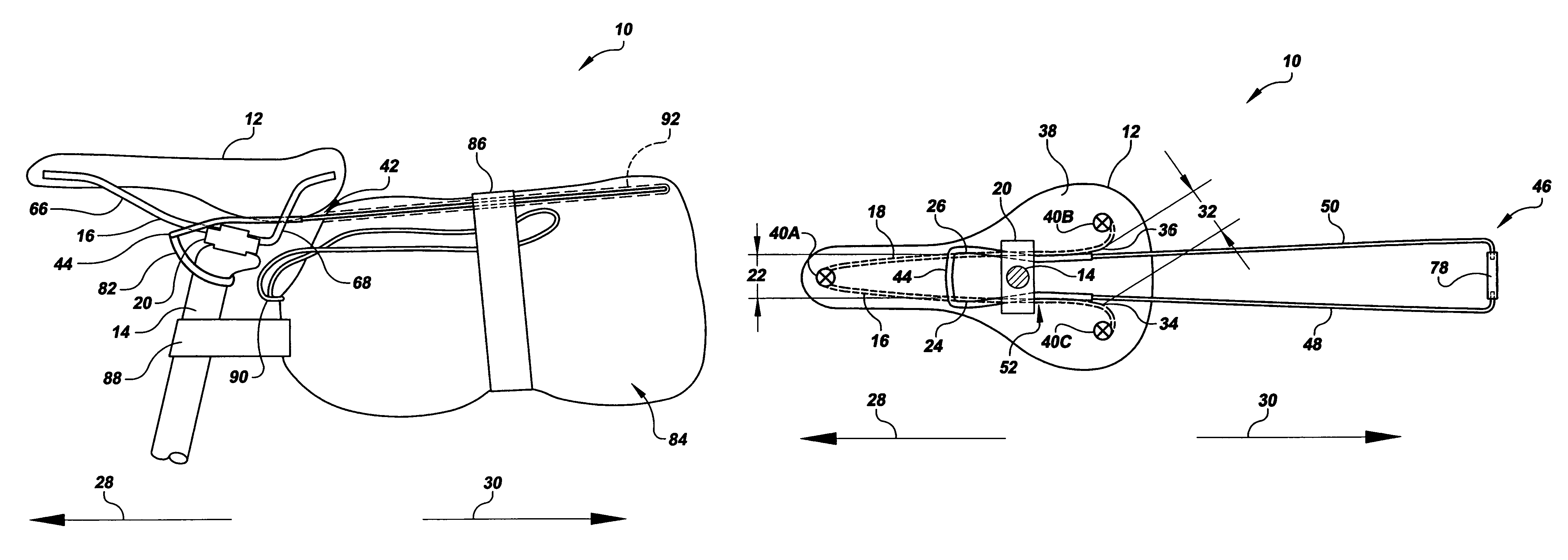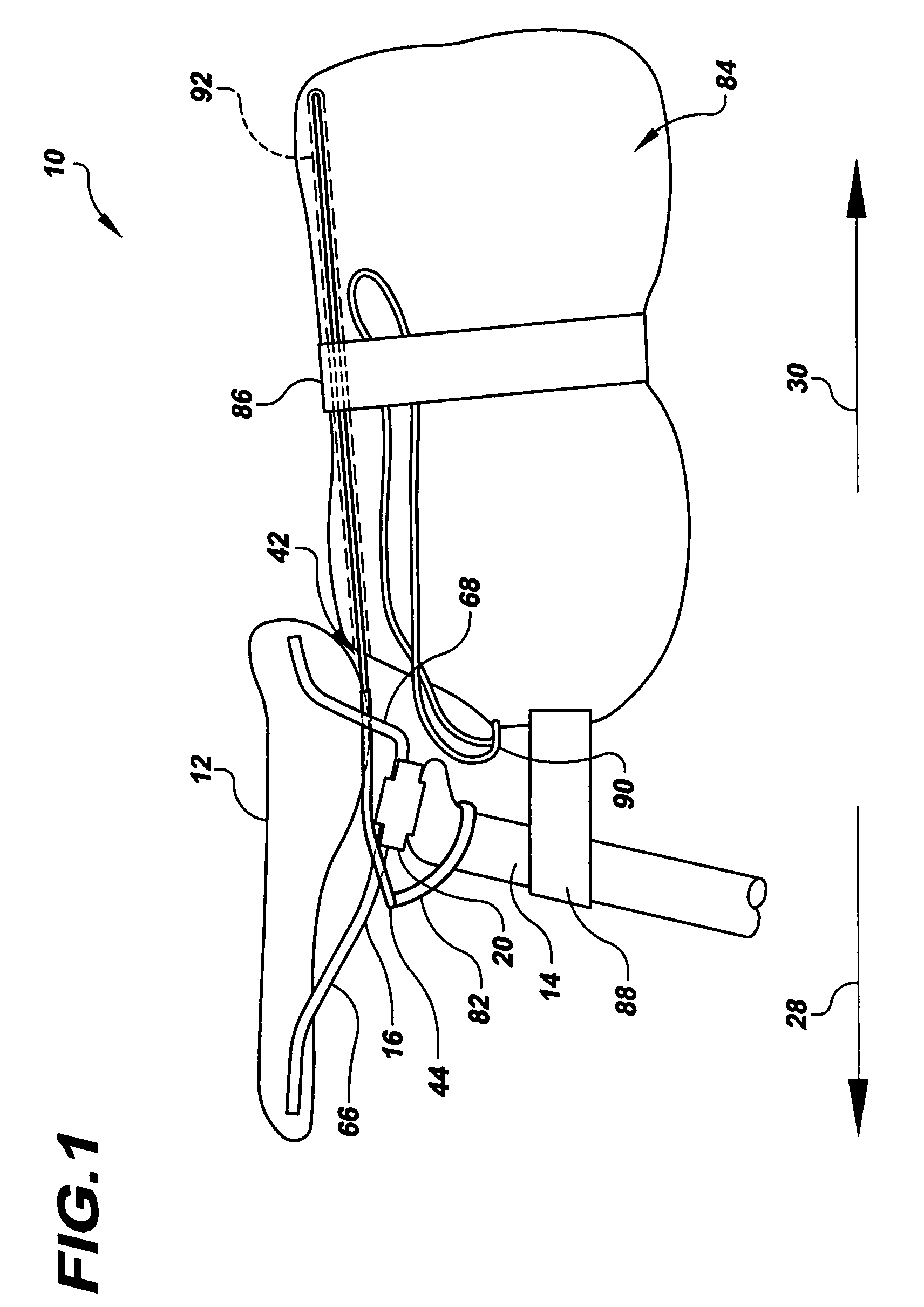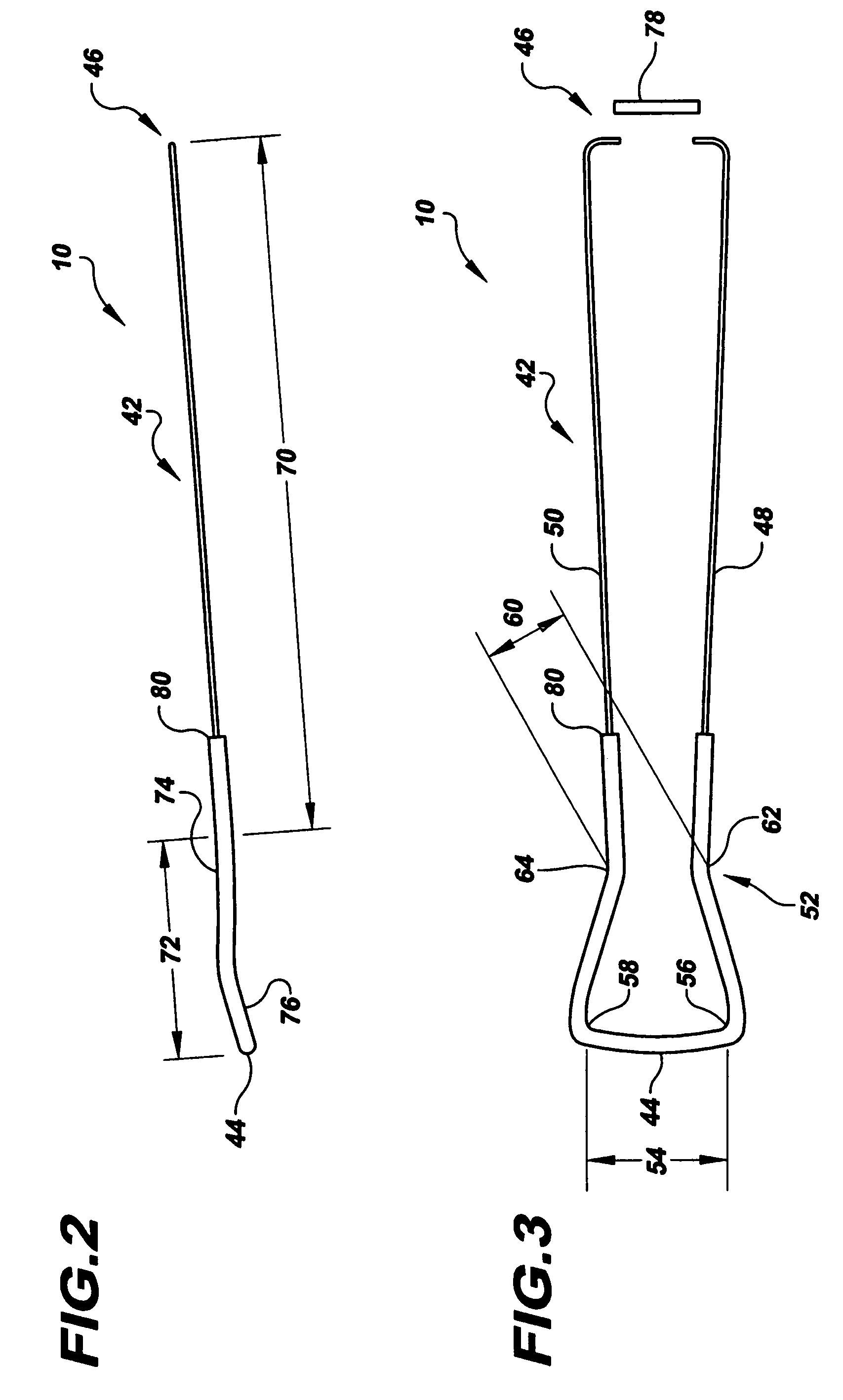Light bag rack for a bicycle
a bicycle and bag rack technology, applied in the field of very light bag racks, can solve the problems of time-consuming mechanical brackets, time-consuming and costly components to be effectively utilized, time-consuming and costly to make and use, etc., and achieve the effects of facilitating rod insertion, reducing the scratching of the seat frame rail, and facilitating the removal of rods
- Summary
- Abstract
- Description
- Claims
- Application Information
AI Technical Summary
Benefits of technology
Problems solved by technology
Method used
Image
Examples
Embodiment Construction
[0022]Referring to the drawings in detail, a light bag rack for a bicycle is shown in FIG. 1, and is generally designated by the reference numeral 10. The light bag rack 10 is shown in FIG. 1 secured to a seat 12 that is supported on a seat post 14. As best shown in FIG. 4, the seat 12 includes a first frame rail 16 and a second frame rail 18. A seat bracket 20 secures the frame rails 16, 18 to the seat post 14. Parallel portions of the first and second frame rails 16, 18 adjacent the seat post 14 are aligned approximately parallel to each other for a limited distance and the rails extend in a direction about parallel to a direction-of-travel axis of the bicycle (not shown) to which the seat post 14 is secured. The parallel portions of the frame rails 16, 18 define a first seat-frame distance that is represented in FIG. 4 by reference numeral 22. The first seat-frame distance 22 is a shortest distance between an exterior edge 24 of the first frame rail 16 and an exterior edge 26 of ...
PUM
 Login to View More
Login to View More Abstract
Description
Claims
Application Information
 Login to View More
Login to View More - R&D
- Intellectual Property
- Life Sciences
- Materials
- Tech Scout
- Unparalleled Data Quality
- Higher Quality Content
- 60% Fewer Hallucinations
Browse by: Latest US Patents, China's latest patents, Technical Efficacy Thesaurus, Application Domain, Technology Topic, Popular Technical Reports.
© 2025 PatSnap. All rights reserved.Legal|Privacy policy|Modern Slavery Act Transparency Statement|Sitemap|About US| Contact US: help@patsnap.com



